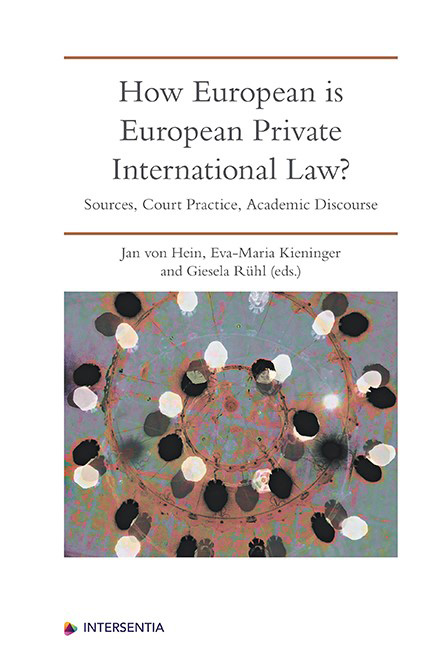Regulations and Conventions: A Comment on the Sources of European Union Private International Law
Published online by Cambridge University Press: 22 December 2020
Summary
A SURVEY OF THE SOURCES
In relation to the conflict of laws, the predominant legislative instrument employed by the European Union is the regulation. Only a single directive dealing with legal aid has been issued under what is now Art. 81 TFEU; scattered conflict rules can also be found in some directives based on other Treaty provisions, e.g. in the Directive on posted workers. A third type of act is the ‘decision’’, which is used by the European Union for the conclusion of international conventions; thus, it is ancillary to treaty law, which is important for the ordering of international private relations. Some Hague Conventions, and also conventions on uniform substantive law, have been adopted by the European Union through decisions; some of the latter, such as the Montreal Convention on international air transport or the railway convention (COTIF), contain rules on jurisdiction and the enforcement of judgments alongside substantive provisions.
But the bulk of European Union conflicts law, which now accounts for more than 50 per cent of total Private International Law is laid down in regulations. Is the regulation the appropriate form of enactment? And what about regulations adopted in ‘enhanced cooperation’? How do regulations relate to conventions? This chapter will look at these questions.
CONFLICTS LEGISLATION THROUGH REGULATIONS OR CONVENTIONS?
Regulations and conventions may be perceived as alternative tools for conflicts legislation. Instead of adopting a regulation, could the European Union negotiate a Hague convention on the topic and implement it internally thereafter? This was the method used by France in former years: instead of adopting a national codification, France has ratified many Hague conventions as lois uniformes. Given the competence of the Union, the European Union might consider imitating this type of conflicts policy. The resulting law within the European Union would be in line with universal standards, certainly an advantage. But there are compelling objections.
Although, in the course of globalisation, cross-border relations are becoming more frequent in all parts of the world, the short distances in Europe, the basic freedoms, the open borders and the common currency have driven international integration of society and economy on our continent to a level unknown elsewhere. Thus, for the foreseeable future, Europe is the laboratory of Private International Law for the rest of the world and not vice versa.
- Type
- Chapter
- Information
- How European is European Private International LawSources, Court Practice, Academic Discourse, pp. 53 - 60Publisher: IntersentiaPrint publication year: 2019



